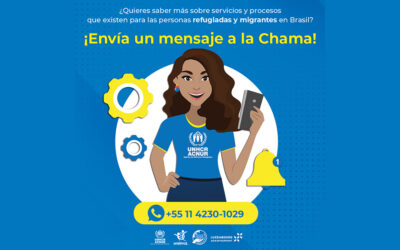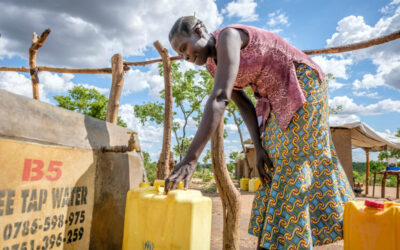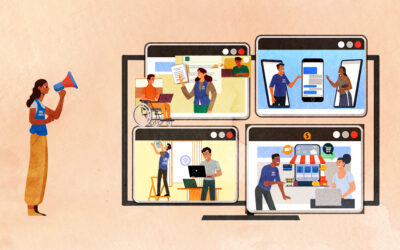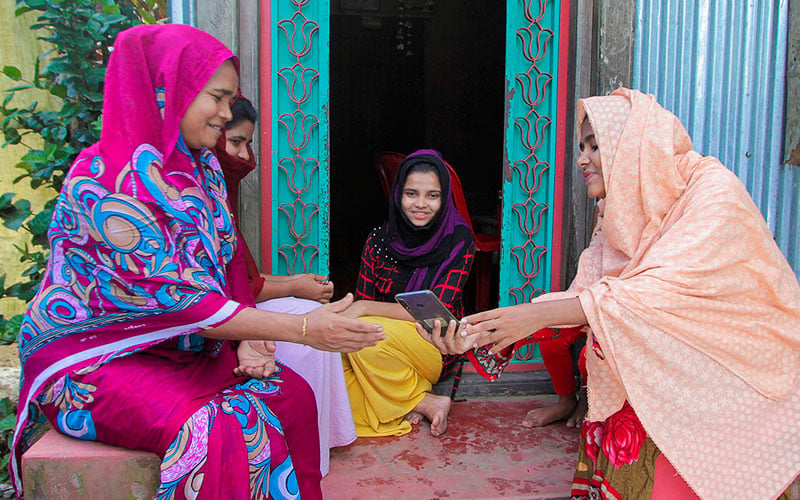
PRIORITY OUTCOME
DIGITAL
SERVICES
Outcome
The communities we serve have access to high quality, efficient and safe digital services from UNHCR and partners.
Photo credit: ©UNHCR/Hasib Zuberi
Current context
In improving digital services, UNHCR will consider these key contextual factors:
- There is an increasing number of connected individuals among the communities we serve, and these individuals want UNHCR and its partners to provide a better digital experience. This entails being able to engage directly with UNHCR, enabled by a clearer unified gateway to information and services.
- There are a number of online services already identified as priorities for delivery. Community consultations have identified the following services as critically important: remote pre-registration, status checks on refugee status determination (RSD) processing and appeals, updating personal and family information, appointment scheduling, identity document issuance and renewal, healthcare requests, and complaints and feedback.
- UNHCR serves diverse populations who are not all connected or exclusively looking for digital services, underlining the importance of user choice. To avoid excluding certain individuals, UNHCR must enhance and build upon today’s service delivery rather than replacing existing capability.
- Digital cash assistance and financial services are also in demand. UNHCR’s objective is to use cash-based interventions to increase access to bank accounts and mobile money as a pathway to greater financial inclusion. UNHCR’s digital delivery of cash assistance will further this trend.
- UNHCR’s global digital tools have mainly been designed for the purposes of strengthening efficiency and integrity of protection, assistance, and service delivery in face-to-face contexts. Increasing the capabilities of UNHCR’s digital identity systems will empower registered individuals by improving their access to online digital services, their control of their personal data processed by UNHCR, and will enable them to digitally exercise their rights as data subjects.
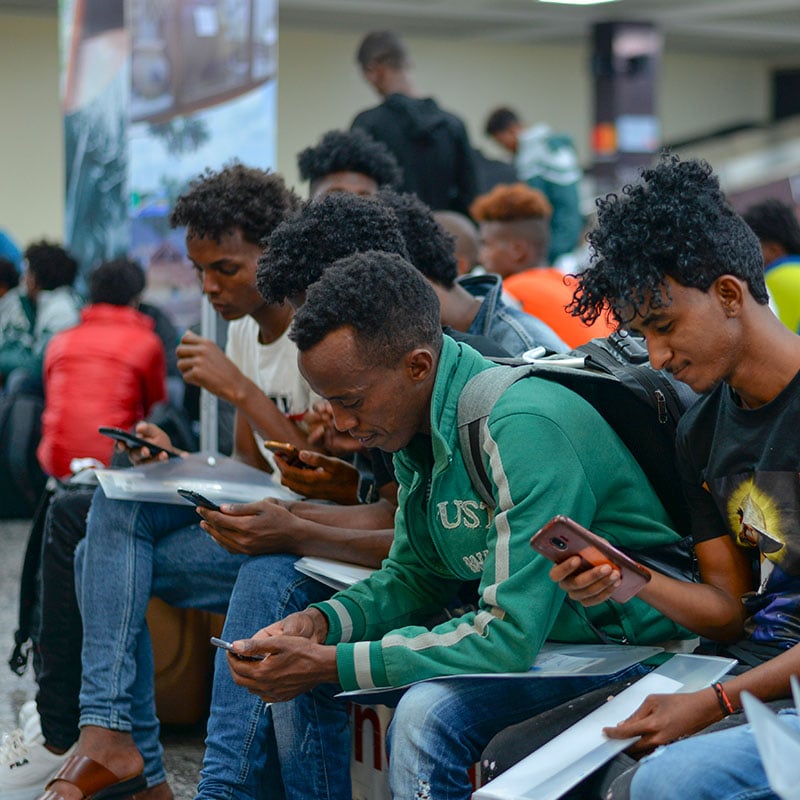
Young refugees evacuated from Libya check their phones using the free WiFi at Kigali International Airport in Kigali, Rwanda. ©UNHCR/Eugene Sibomana
Five-year results
By the end of 2026, UNHCR will have:
- Increased access to UNHCR digital services on the part of the people we serve, while building on in-person services to avoid the risks of exclusion.
- Enabled greater digital and financial inclusion of the people we serve.
- Facilitated the safe and secure use of digital identity for refugees and others registered with UNHCR, enabling them access to online services, the digital exercise of their rights as data subjects, and increased control of their personal data.
- Established a new framework for UNHCR’s delivery of services to the people we serve, covering the spectrum of face-to-face, kiosk, telephone, mobile and web-based components.
- Re-designed business processes to enable the delivery of priority core digital services, including consideration of providing predictive services.
- Established, and agreed with partners, common technical standards relating to key areas such as digital identity and data security.
- Enhanced data protection and security, and renewed efforts to address emerging cyber-security risks.
- Analyzed data generated by digital service delivery to optimize the quality of services and to inform humanitarian response and development planning.
Priority actions
- Engage in research and partnerships to inform the foundations for UNHCR’s digital gateway and services.
- Strengthen UNHCR’s PRIMES to provide access to a “good digital identity”, allowing for more user control of data as well as increased online and offline functionality.
- Begin the development of UNHCR’s digital gateway and other core digital services.
- Design and pilot core digital services in partnership with the communities we serve in selected field contexts.
- Assess, design and implement solutions to rationalize UNHCR’s approach to responding to queries across different channels, in order to improve efficiency, quality and consistency.
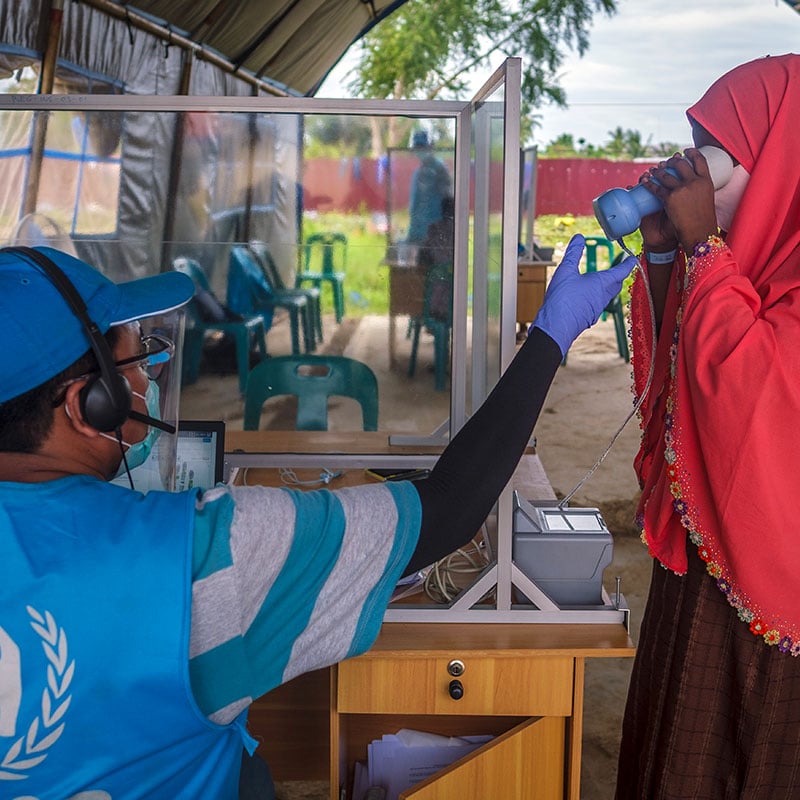
Junaida, a Rohingya refugee from Myanmar, has her eyes scanned by UNHCR during her biometrics registration at a reception site in Lhokseumawe, northern Aceh province, Indonesia. ©UNHCR/Jiro Ose
The strategy in action
One message at a time, La Chama chatbot combats falsehoods
To reduce misinformation among Venezuelan refugees and migrants in Boa Vista, Brazil, UNHCR launched the La Chama chatbot in 2021.
Leveraging technology to ensure water provision in refugee camps
To better monitor and ensure the timely delivery of water supplies to refugee camps in Uganda, UNHCR set up a digital monitoring system to receive real-time data on how water was being delivered and consumed across the country.
Enabling innovation and experimentation through UNHCR’s Digital Innovation Fund
To stimulate innovative approaches to digital technologies, UNHCR’s Digital Innovation Fund provides UNHCR colleagues with the support they need to deliver forward-thinking initiatives on digital inclusion, digital protection, and digital services.

